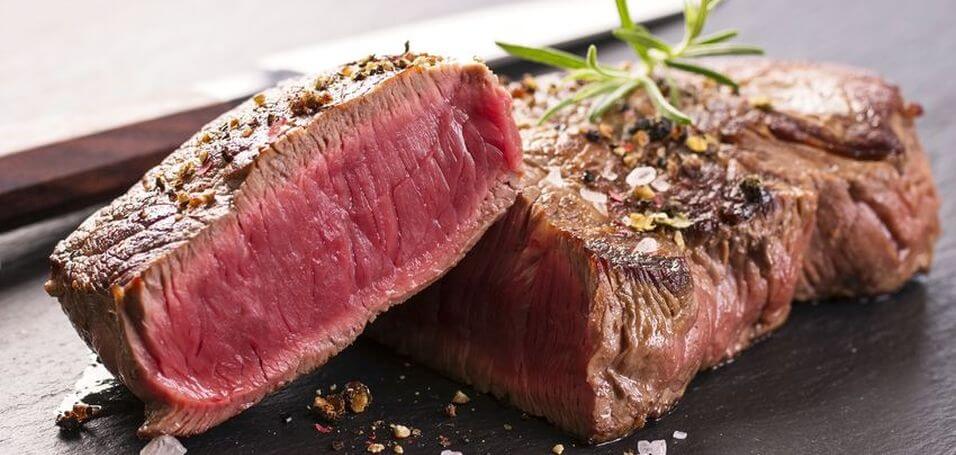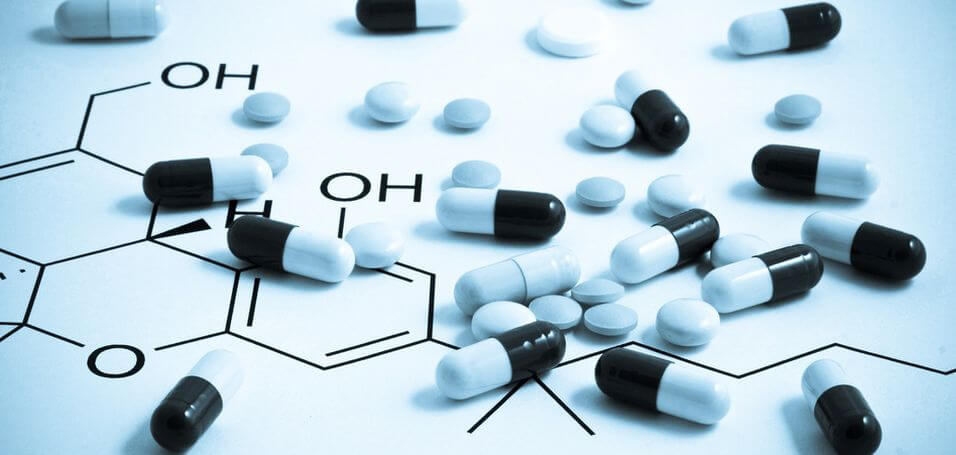L-carnitine is finding its way into more and more supplements these days.
If you listen to the hype, it’s a potent and versatile supplement that can confer a number of benefits, including more fat loss and muscle gain, better post-workout recovery, and increased cognitive performance.
On the other hand, many people claim that it’s a complete dud and can’t do any of these things.
Who’s right?
Well, as you’ll see, the truth is somewhere in the middle.
The reality is L-carnitine isn’t a wonder supplement, but science does show that it can be effective for certain purposes.
And in this article, we’re going to break it all down.
You’re going to learn what L-carnitine is, how it works, how it can (and can’t) benefit you, how to take it, and more.
Let’s get started.
- What Is L-Carnitine?
- Why Do People Supplement with L-Carnitine?
- What Are the Benefits of Supplementing with L-Carnitine?
- What’s the Clinically Effective Dose of L-Carnitine?
- What Types of Results Should I Expect From L-Carnitine?
- Does L-Carnitine Have Any Side Effects?
- What’s the Best Type of L-Carnitine?
- The Bottom Line on L-Carnitine
Table of Contents
+What Is L-Carnitine?

L-carnitine is a naturally occurring amino acid found mostly in meat and dairy products.
It’s “conditionally essential,” which means that your body can produce it as long as you’re also eating enough of two other amino acids that it can’t produce, lysine and methionine.
L-carnitine serves several vital functions in the body, mostly related to the production of cellular energy. Thus, it’s not surprising that most of the L-carnitine in your body is found in your muscles, which have to be able to quickly generate a tremendous amount of energy.
Why the “L” in “L-carnitine,” you’re wondering?
Well, it simply differentiates it from another form of carnitine, D-carnitine, which not only has no known benefits but actually hinders your body’s ability to absorb L-carnitine.
That’s why you’ll never see D-carnitine in supplements. Only L-carnitine, which you’ll find in one of four common forms:
- L-Carnitine
This is the same form of carnitine that’s produced by your body.
- Acetyl-L-Carnitine (ALCAR)
This form of L-carnitine has gone through a chemical process known as “acetylation,” which allows it to pass the brain barrier.
- L-Carnitine L-Tartrate (LCLT)
This form of L-carnitine is bound to tartaric acid to help improve absorption.
- Glycine Propionyl L-Carnitine (GPLC)
This form of L-carnitine is bound to the amino acid glycine, and research shows it exerts antioxidant effects in the body and may be able to enhance blood flow while exercising.
Why Do People Supplement with L-Carnitine?
The simple answer to this question is the obvious:
People supplement with L-carnitine to increase their body’s carnitine stores, especially the carnitine levels in their muscles.
This, in turn, can produce a number of beneficial effects, including less muscle soreness, better post-workout recovery, and increased nitric oxide production.
No single form of carnitine can provide all these benefits, though…
What Are the Benefits of Supplementing with L-Carnitine?

Most people’s diets are “healthy” enough for their bodies to maintain adequate levels of carnitine, but research does show that carnitine deficiencies are fairly common among the elderly and people that don’t eat meat.
Thus, most of us fitness folk don’t need to supplement with carnitine for health reasons.
Instead, we do it to boost our bodies’ carnitine stores beyond what’s normally attainable through diet alone, which can provide a number of benefits.
L-Carnitine and Muscle Damage and Soreness
This is one of the most reliable benefits of L-carnitine supplementation, and that’s why you’ll find it in my post-workout supplement RECHARGE.
Studies show that it reduces muscle damage during and after intense exercise, thereby improving muscle repair and reducing muscle soreness.
Researchers are still figuring out exactly how this works, but the most likely hypothesis at this point is that these effects are mediated by an increase in blood flow to the muscles, which reduces oxidative stress and improves cellular signalling related to muscle recovery.
L-Carnitine and Fat Loss
L-carnitine is necessary for fat oxidation (burning), which is why supplement marketers often claim it helps speed up fat loss.
Unfortunately, it’s not that cut and dried.
While it’s true that a carnitine deficiency could make it harder to lose fat, most people aren’t deficient, and studies show that boosting carnitine levels beyond normal doesn’t increase fat burning.
So, supplementing with any form of L-carnitine isn’t likely to help you lose fat faster unless you’re elderly or don’t eat meat (and even then, it’s questionable if it’ll make a difference).
L-Carnitine and Muscle Growth
Some supplement companies claim that L-carnitine can directly help you gain muscle and strength faster, like creatine.
Well, the only case I know of where supplementation with L-carnitine has directly improved muscle growth is in the elderly, and that was due to correcting a deficiency.
Thus, it’s safe to assume that we wouldn’t see the same effects in those of us with normal carnitine levels.
That said, L-carnitine supplementation can indirectly help us gain more muscle and strength due to its effects on soreness and recovery.
You see, the less soreness you experience after training and the faster you recover from it, the harder you can train in your workouts and push your body in general.
This, over time, can result in faster progress toward your body composition goals.
L-Carnitine and Exercise Performance
Most research suggests that L-carnitine doesn’t improve exercise performance to a great degree.
A few studies have suggested that supplementing with L-carnitine may increase power output, but the data is pretty weak so far.
Last but not least, L-carnitine has been shown to reduce both mental and physical fatigue during exercise in the elderly, but not in young, healthy people.
So, the bulk of the current scientific evidence says that, unfortunately, L-carnitine probably isn’t going to improve your exercise performance.
L-Carnitine and Cognitive Enhancement
Studies have shown that ALCAR can reduce fatigue and improve concentration in people with chronic fatigue syndrome or a carnitine deficiency.
There’s also some evidence ALCAR may reduce the negative symptoms of ADHD.
Many healthy people also report cognitive benefits with acetyl-L-carnitine supplementation, but unfortunately, there isn’t enough research on it yet to confirm or deny such claims.
L-Carnitine and Insulin Sensitivity
A few studies have shown that L-carnitine may increase insulin sensitivity in people with diabetes, but it’s unknown if it produces the same effects in healthy people.
L-Carnitine and Fertility
Several studies have found that L-carnitine can improve male sperm quality, and particularly in men who already have low sperm quality or infertility issues.
What’s the Clinically Effective Dose of L-Carnitine?

The effective dose of L-carnitine depends on which type you use.
The recommended doses for each are as follows:
- Acetyl-L-Carnitine: 630 to 2,500 mg per day
- L-Carnitine L-Tartrate: 1,000 to 4,000 mg per day
- Glycine Propionyl L-Carnitine: 1,000 to 4,000 mg per day
- L-Carnitine: 500 to 2,000 mg per day
What Types of Results Should I Expect From L-Carnitine?
That really depends on who you are.
If you’re young, healthy, and eat a relatively nutritious diet, the main benefit you can expect from L-carnitine supplementation is less post-workout muscle soreness and faster recovery.
It may also slightly increase your workout performance, but the evidence is fairly weak.
If you’re middle-aged or older, supplementing with L-carnitine may also help you lose fat and gain muscle slightly faster and experience less fatigue in your workouts.
And if you don’t eat meat, increasing your carnitine levels through dietary changes or supplementation can benefit you in the same ways as it does older people.
(In case you’re wondering why carnitine deficiencies are so prevalent among vegans and vegetarians, most vegan and vegetarian diets contain far lower amounts of lysine and methionine–the essential amino acids needed to produce carnitine–than omnivorous diets.)
Does L-Carnitine Have Any Side Effects?
Studies show that L-carnitine supplementation is safe and without side effects.
This matter is controversial, however, due to a study published in 2013 that suggested that the carnitine in meat can increase the risk of heart disease.
There’s a good reason to not buy into the hysteria, though: this research didn’t actually demonstrate that eating red meat increased the risk of heart disease.
Instead, it showed that it caused a temporary increase of a substance known as TMAO, which has been associated with heart disease but hasn’t been proven to actually cause it.
In other words, the idea that eating meat increases the risk of heart disease in all people under all circumstances is an unlikely hypothesis.
This is further supported by the fact that studies have found no link between red meat consumption and heart disease, diabetes, stroke, or cancer.
That said, there’s evidence that eating processed red meats like bacon, salami, and hot dogs, may increase the risk of heart disease, but we don’t know if this observation is related to red meat consumption per se or generally unhealthy living.
What’s the Best Type of L-Carnitine?

L-carnitine is poorly absorbed, so you’ll want to use one of the other forms.
My go-to is L-carnitine L-tartrate because it’s the form most associated with muscle- and recovery-related benefits, and that’s why I included it in my post-workout supplement RECHARGE.
RECHARGE gives you the proven strength, size, and recovery benefits of creatine monohydrate plus the muscle repair and insulin sensitivity benefits of L-carnitine L-tartrate and corosolic acid.
Each serving of RECHARGE contains:
- 5 grams of creatine monohydrate.
- 2100 milligrams of L-carnitine L-tartrate.
- 10.8 milligrams of corosolic acid.
Furthermore, RECHARGE is naturally sweetened with stevia, naturally flavored, and it contains no junk fillers or artificial food dyes.
The Bottom Line on L-Carnitine
L-carnitine is a worthwhile supplement, but not for the reasons that many people claim.
It won’t help you lose fat or directly gain muscle or strength faster, but it can help you push yourself harder in your workouts and recover faster, which can mean better progress over time.
So, if you want less muscle soreness after workouts and better muscle recovery, then it’s worth adding L-carnitine to your supplement regimen.
What’s your take on supplementing with L-carnitine? Have anything else to share? Let me know in the comments below!
Scientific References +
- Cho, E., & Smith-Warner, S. A. (2004). Meat and fat intake and colorectal cancer risk: A pooled analysis of 14 prospective studies. Cancer Research, 64(7 Supplement). https://cancerres.aacrjournals.org/content/64/7_Supplement/113.1?sid=702573a4-32fa-4664-bd83-eed0043f7280
- Koeth, R. A., Wang, Z., Levison, B. S., Buffa, J. A., Org, E., Sheehy, B. T., Britt, E. B., Fu, X., Wu, Y., Li, L., Smith, J. D., DiDonato, J. A., Chen, J., Li, H., Wu, G. D., Lewis, J. D., Warrier, M., Brown, J. M., Krauss, R. M., … Hazen, S. L. (2013). Intestinal microbiota metabolism of L-carnitine, a nutrient in red meat, promotes atherosclerosis. Nature Medicine, 19(5), 576. https://doi.org/10.1038/NM.3145
- JR, U., GD, L., & A, A. (2013). Gut microbiota metabolism of L-carnitine and cardiovascular risk. Atherosclerosis, 231(2), 456–461. https://doi.org/10.1016/J.ATHEROSCLEROSIS.2013.10.013
- M Krajcovicová-Kudlácková, R Simoncic, A Béderová, K Babinská, & I Béder. (n.d.). Correlation of carnitine levels to methionine and lysine intake - PubMed. Retrieved July 23, 2021, from https://pubmed.ncbi.nlm.nih.gov/11043928/
- A, L., P, S., P, S., D, P., B, G., F, L., M, S., A, A., & L, G. (2004). A placebo-controlled double-blind randomized trial of the use of combined l-carnitine and l-acetyl-carnitine treatment in men with asthenozoospermia. Fertility and Sterility, 81(6), 1578–1584. https://doi.org/10.1016/J.FERTNSTERT.2003.10.034
- G, B., F, R., T, A., A, K., F, M., & M, B. (2005). Placebo-controlled double-blind randomized trial on the use of L-carnitine, L-acetylcarnitine, or combined L-carnitine and L-acetylcarnitine in men with idiopathic asthenozoospermia. Fertility and Sterility, 84(3), 662–671. https://doi.org/10.1016/J.FERTNSTERT.2005.03.064
- P, R., D, C., G, L., F, L., N, M., G, G., S, O., & G, R. (2009). Ameliorating hypertension and insulin resistance in subjects at increased cardiovascular risk: effects of acetyl-L-carnitine therapy. Hypertension (Dallas, Tex. : 1979), 54(3), 567–574. https://doi.org/10.1161/HYPERTENSIONAHA.109.132522
- A, M., A, C., C, C., C, R., F, R. F., & A, L. (2010). Caloric restriction and L-carnitine administration improves insulin sensitivity in patients with impaired glucose metabolism. JPEN. Journal of Parenteral and Enteral Nutrition, 34(3), 295–299. https://doi.org/10.1177/0148607109353440
- LJ, V. O., & HR, S. (2002). Efficacy of carnitine in the treatment of children with attention-deficit hyperactivity disorder. Prostaglandins, Leukotrienes, and Essential Fatty Acids, 67(1), 33–38. https://doi.org/10.1054/PLEF.2002.0378
- M, C., RK, A., RR, M., & JW, H. (2010). Clinical outcomes and low-dose levocarnitine supplementation in psychiatric inpatients with documented hypocarnitinemia: a retrospective chart review. Journal of Psychiatric Practice, 16(1), 5–14. https://doi.org/10.1097/01.PRA.0000367773.03636.D1
- RC, V., & HR, S. (2004). Exploratory open label, randomized study of acetyl- and propionylcarnitine in chronic fatigue syndrome. Psychosomatic Medicine, 66(2), 276–282. https://doi.org/10.1097/01.PSY.0000116249.60477.E9
- M, M., MP, G., E, C., V, C., M, M., A, K., S, N., M, V., L, C., & M, M. (2008). Acetyl L-carnitine (ALC) treatment in elderly patients with fatigue. Archives of Gerontology and Geriatrics, 46(2), 181–190. https://doi.org/10.1016/J.ARCHGER.2007.03.012
- M, M., L, C., MP, G., M, V., V, C., & M, M. (2007). L-Carnitine treatment reduces severity of physical and mental fatigue and increases cognitive functions in centenarians: a randomized and controlled clinical trial. The American Journal of Clinical Nutrition, 86(6), 1738–1744. https://doi.org/10.1093/AJCN/86.5.1738
- BT, W., FB, S., D, C.-T., K, M., IA, M., & PL, G. (2011). Chronic oral ingestion of L-carnitine and carbohydrate increases muscle carnitine content and alters muscle fuel metabolism during exercise in humans. The Journal of Physiology, 589(Pt 4), 963–973. https://doi.org/10.1113/JPHYSIOL.2010.201343
- PL, J., ER, G., W, B., I, O., & JJ, H. (2009). Glycine propionyl-L-carnitine produces enhanced anaerobic work capacity with reduced lactate accumulation in resistance trained males. Journal of the International Society of Sports Nutrition, 6. https://doi.org/10.1186/1550-2783-6-9
- YS, C., SK, C., H, S., SN, L., D, C., & K, L. (2001). Effects of carnitine coingested caffeine on carnitine metabolism and endurance capacity in athletes. Journal of Nutritional Science and Vitaminology, 47(6), 378–384. https://doi.org/10.3177/JNSV.47.378
- RG, V., J, G., M, S., & PA, R. (2000). L-Carnitine supplementation combined with aerobic training does not promote weight loss in moderately obese women. International Journal of Sport Nutrition and Exercise Metabolism, 10(2), 199–207. https://doi.org/10.1123/IJSNEM.10.2.199
- Jyothsna Karanth, & K Jeevaratnam. (n.d.). Effect of carnitine supplementation on mitochondrial enzymes in liver and skeletal muscle of rat after dietary lipid manipulation and physical activity - PubMed. Retrieved July 23, 2021, from https://pubmed.ncbi.nlm.nih.gov/20795369/
- JY, H., WJ, K., JS, V., MS, F., GA, T., C, D.-L., M, C., K, H., & CM, M. (2010). l-Carnitine l-tartrate supplementation favorably affects biochemical markers of recovery from physical exertion in middle-aged men and women. Metabolism: Clinical and Experimental, 59(8), 1190–1199. https://doi.org/10.1016/J.METABOL.2009.11.012
- Kraemer, W. J., Volek, J. S., Spiering, B. A., & Vingren, J. L. (2005). L -Carnitine Supplementation: A New Paradigm for its Role in Exercise. Monatshefte Für Chemie / Chemical Monthly 2005 136:8, 136(8), 1383–1390. https://doi.org/10.1007/S00706-005-0322-Y
- Flanagan, J. L., Simmons, P. A., Vehige, J., Willcox, M. D., & Garrett, Q. (2010). Role of carnitine in disease. Nutrition & Metabolism, 7, 30. https://doi.org/10.1186/1743-7075-7-30
- RJ, B., LC, T., & WA, S. (2009). Glycine propionyl-L-carnitine modulates lipid peroxidation and nitric oxide in human subjects. International Journal for Vitamin and Nutrition Research. Internationale Zeitschrift Fur Vitamin- Und Ernahrungsforschung. Journal International de Vitaminologie et de Nutrition, 79(3), 131–141. https://doi.org/10.1024/0300-9831.79.3.131
- JS, V., WJ, K., MR, R., AL, G., NA, R., & P, G. (2002). L-Carnitine L-tartrate supplementation favorably affects markers of recovery from exercise stress. American Journal of Physiology. Endocrinology and Metabolism, 282(2). https://doi.org/10.1152/AJPENDO.00277.2001
- Bloomer, R. J., Smith, W. A., & Fisher-Wellman, K. H. (2007). Glycine propionyl-L-carnitine increases plasma nitrate/nitrite in resistance trained men. Journal of the International Society of Sports Nutrition, 4, 22. https://doi.org/10.1186/1550-2783-4-22
- AA, S., IN, I., MS, K., VB, P., & GL, S. (2006). Effects of L-, D-, and DL-carnitine on morphometric parameters of skeletal muscle and exercise performance of laboratory animals receiving carnitine-deficient diet. Bulletin of Experimental Biology and Medicine, 142(4), 458–460. https://doi.org/10.1007/S10517-006-0391-X
- AM, E., & G, F. (2003). Pharmacokinetics of L-carnitine. Clinical Pharmacokinetics, 42(11), 941–967. https://doi.org/10.2165/00003088-200342110-00002
- J, P., B, P.-S., R, B., D, J., P, N., S, L., & T, L. (2011). L-carnitine--metabolic functions and meaning in humans life. Current Drug Metabolism, 12(7), 667–678. https://doi.org/10.2174/138920011796504536
- Vigotsky, A. D., Beardsley, C., Contreras, B., Steele, J., Ogborn, D., & Phillips, S. M. (2017). Greater electromyographic responses do not imply greater motor unit recruitment and “hypertrophic potential” cannot be inferred. Journal of Strength and Conditioning Research, 31(1). https://doi.org/10.1519/JSC.0000000000001249
- Raez, M. B. I., Hussain, M. S., & Mohd-Yasin, F. (2006). Techniques of EMG signal analysis: detection, processing, classification and applications. Biological Procedures Online, 8(1), 11. https://doi.org/10.1251/BPO115










